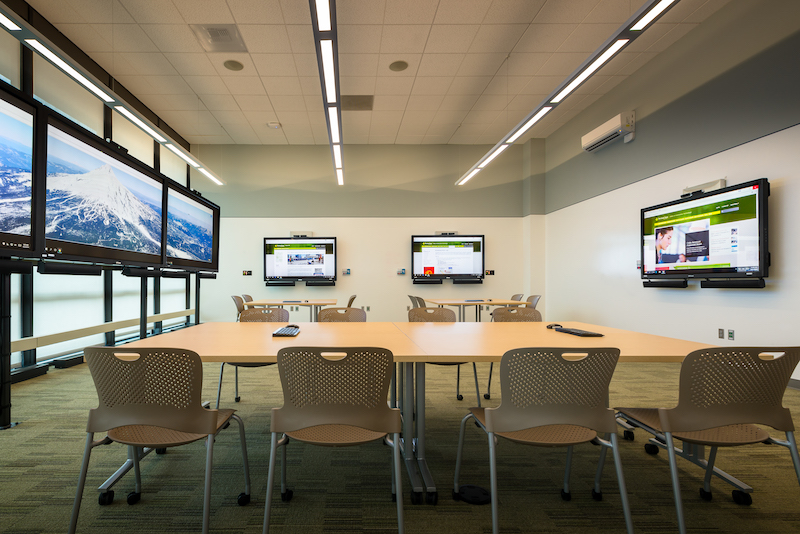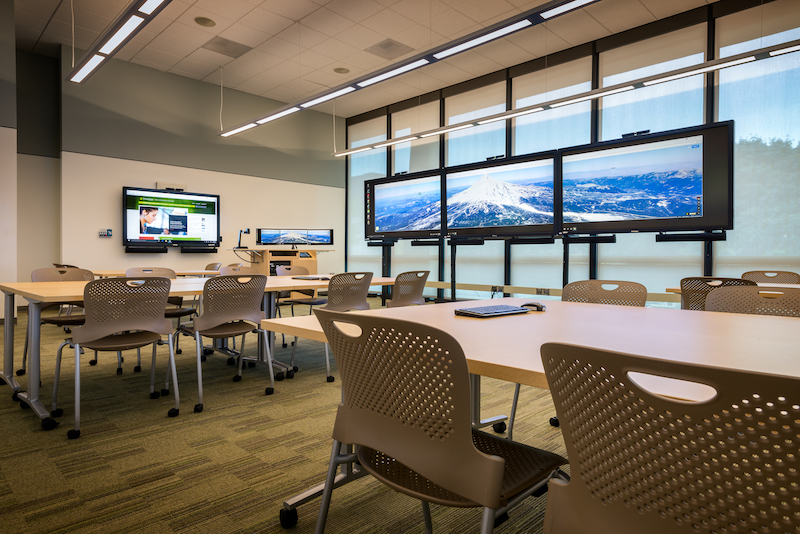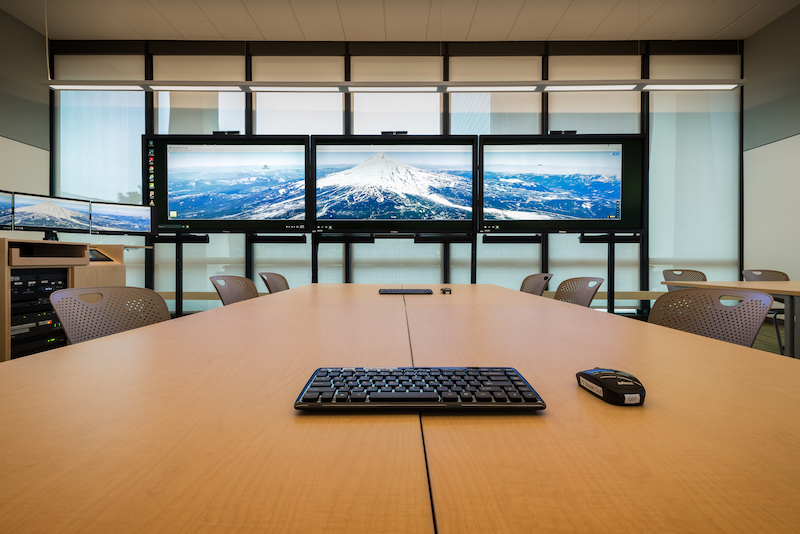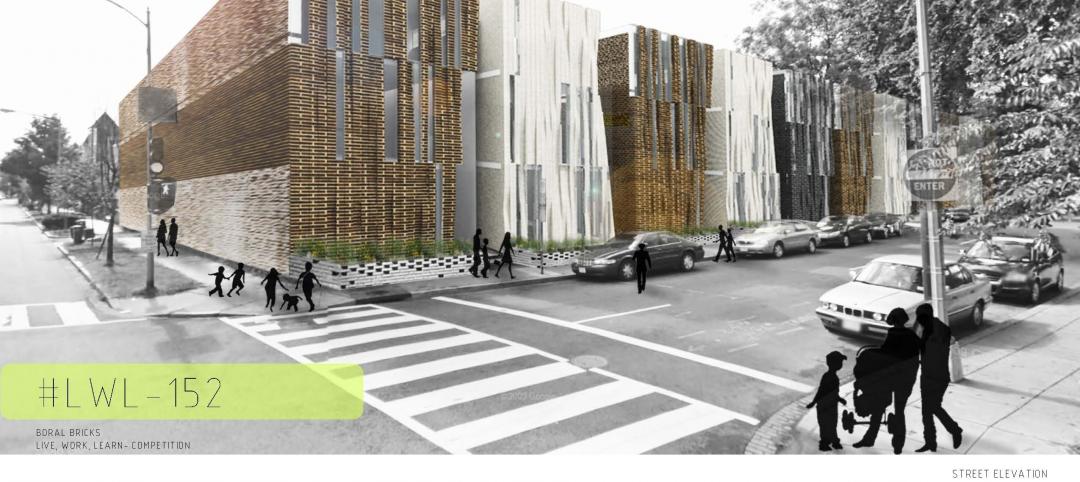Portland State University wanted to create a high-tech collaboration space for its students, researchers, and community stakeholders to come together. The space would be used to work on a variety of projects that link data sets, visualization, and decisions.
In order for the room to achieve its main purpose, it needed to have large visuals, powerful computing, robust video conferencing and a modular environment. The new space, dubbed the Decision Theater, originally was going to have a multi-panel video wall installed, but the concern was that the video wall would be great for large groups, but wouldn’t be conducive to individuals or small groups working separately in the room.
Eventually, PSU decided to use InFocus Mondopads to create the video wall because they can be used together to display one large image, but can also be used separately for smaller groups without losing any of their desired functions.
InFocus Mondopads, which are essentially large tablets, include features such as a touchscreen interface, camera, speaker bar, extensive connectivity, and the ability to be integrated into existing AV systems.
 Photo courtesy Portland State University.
Photo courtesy Portland State University.
In total, PSU used seven Mondopads in the Decision Theater. Three 1080p 80-inch Mondopads are tiled across the front of the room with the ability to display multiple smaller images or one giant image. Another four 1080p 70-inch Mondopads were placed on the remaining three walls to create group huddle spaces. The three 80-inch Mondopads at the front of the classroom can also be broken apart to create seven separate all-in-one displays.
Each Mondopad has a multi-touch high definition display and comes with a built-in Windows PC and a full version of Microsoft Office. The large screen can also become a digital interactive whiteboard, has document annotation, and allows users to share, view, and control the screen from a tablet or smartphone.
Business-class video conferencing allows PSU students and researchers to connect with individuals across the country. While on a video call, the work being presented, such as design plans, can be drawn on top of and annotated.
The full Mondopad product line stretches from 57-inch screens up to 85-inch screens.
 Photo courtesy Portland State University.
Photo courtesy Portland State University.
Related Stories
| Jun 7, 2012
WDMA and FMA to affiliate and integrate operations
Over the coming months both organizations will begin the process of formalizing the details of the agreement for final approval by both organizations, with the formal change expected to take effect in January 2015.
| Jun 4, 2012
Brownfield goes green
Chicago Center for Green Technology uses high-speed, energy-efficient hand dryers to share its green message and earn LEED credits.
| Jun 1, 2012
New BD+C University Course on Insulated Metal Panels available
By completing this course, you earn 1.0 HSW/SD AIA Learning Units.
| Jun 1, 2012
AIA 2030 Commitment Program reports new results
The full report contains participating firm demographics, energy reduction initiatives undertaken by firms, anecdotal accounts, and lessons learned.
| May 31, 2012
3 Metal Roofing Case Studies Illustrate Benefits
Metal roofing systems offer values such as longevity, favorable life cycle costs, and heightened aesthetic appeal.
| May 30, 2012
Boral Bricks announces winners of “Live.Work.Learn” student architecture contest
Eun Grace Ko, a student at the Ryerson University in Toronto, Canada, named winner of annual contest.
| May 29, 2012
Reconstruction Awards Entry Information
Download a PDF of the Entry Information at the bottom of this page.
| May 24, 2012
2012 Reconstruction Awards Entry Form
Download a PDF of the Entry Form at the bottom of this page.
| May 15, 2012
SAGE Electrochromics to become wholly owned subsidiary of Saint-Gobain
This deal will help SAGE expand into international markets, develop new products and complete construction of the company’s new, state-of-the-art manufacturing facility in Faribault, Minn.
| May 14, 2012
Plumbing research coalition to study drainline transport issue
The effort is aimed at determining if decreasing levels of water flow––caused by increasingly efficient plumbing fixtures––are sufficient to clear debris from plumbing pipes.















